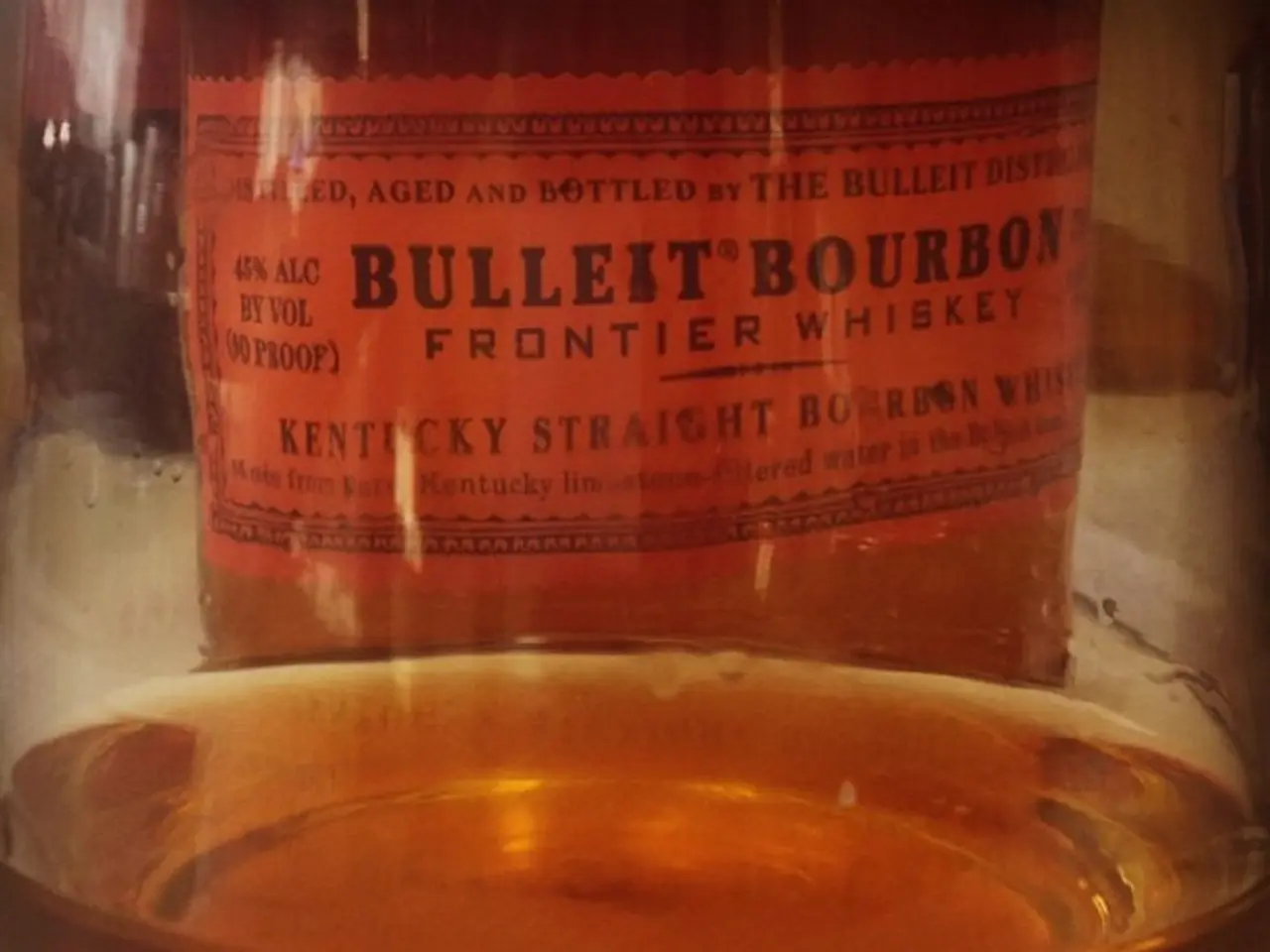Over fifty-four percent of persistent drinkers reveal they might modify their drinking routines upon encountering calorie labels on alcoholic beverages, according to recent research findings.
In a groundbreaking study, researchers at University College London (UCL) have found that calorie labels on alcoholic drinks could potentially help heavy drinkers reduce their alcohol intake. The study, led by Professor Jamie Brown and Dr Andrew Steptoe, involved over 4,600 participants who self-identified as non-drinkers, low-risk drinkers, and hazardous drinkers.
The results of the survey, which considered more than a quarter of heavy drinkers saying they would choose lower-calorie drinks, are encouraging, according to Professor Brown. However, it's important to note that only one in six heavy drinkers said they would drink alcohol less frequently in response to calorie labels.
The study also found that among the heavier drinkers, who were mostly men, 54% said they would change their drink consumption if alcoholic beverages were labelled with the amount of calories they contain. Among all respondents, 46% said they would change how much or what they drank in response to calorie labels.
While the study does not indicate that alcohol calorie labeling in isolation would contribute substantially to the UK government's strategy to reduce harms from alcohol and obesity, Professor Brown suggests that a coherent set of policies to tackle problem drinking is needed, not just a sticky label. He proposes that alcohol calorie labeling might have a positive role as part of a more comprehensive approach, including regulation on advertising, availability, taxation, and price.
In the European Union (EU), still wines made from the 2024 grape harvest onwards must include ingredient and nutritional information, including energy values (calories), on their labels. This applies to wines sold anywhere in the EU, including imports, and the nutritional information must be provided in the language of the country where the wine is sold. However, this requirement is currently specific to wine; other alcoholic beverages like spirits do not yet have a unified mandatory calorie labeling rule across the EU.
Key points for the implementation of mandatory calorie labeling on alcoholic beverages include consumer awareness and health, transparency and informed choice, public health initiatives, and EU regulatory harmonization. Organizations like the World Health Organization (WHO) advocate for better alcohol labeling, including health warnings and calorie information, to raise awareness about alcohol-related harms and improve public health outcomes linked to alcohol consumption.
Dr Katherine Severi, chief executive of the Institute of Alcohol Studies, advocates for mandatory calorie labeling on all alcoholic drinks, arguing that industry self-regulation is not sufficient to fulfill consumers' right to know what they are consuming. She believes that such labeling would promote transparency and allow consumers to better understand what they are consuming, particularly for people managing allergies or health conditions.
In conclusion, while calorie labeling is now mandatory on still wines in the EU, it is not yet a universal requirement for all alcoholic beverages. The push for mandatory calorie and health-related labeling derives from the goal to increase consumer awareness, support healthier choices, and improve public health outcomes linked to alcohol consumption.
- If calorie labels are implemented on flights, passengers could potentially opt for lower-calorie beverages, similar to heavy drinkers choosing lower-calorie drinks in the UCL study.
- A health-and-wellness resort could offer fitness-and-exercise routines and nutritional guidance along with weight-management programs, complemented by eco-friendly practices for a holistic approach.
- In the context of the EU's mandatory calorie labeling on still wines, it might be beneficial for resorts to follow suit, providing guests with clear nutritional information in the spirit of transparency and informed choice.
- To further support healthier choices and improve public health outcomes, organizations might advocate for mandatory calorie labels on flight beverages, as they do for still wines in the EU, in line with the World Health Organization's emphasis on better alcohol labeling.







